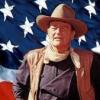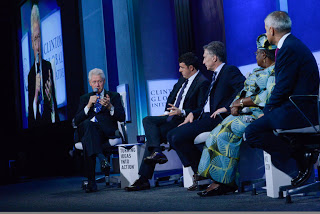

| Online: | |
| Visits: | |
| Stories: |
Globalists : Ponder What Went Wrong
Monday, September 26, 2016 21:52
% of readers think this story is Fact. Add your two cents.
BESIEGED GLOBALISTS PONDER WHAT WENT WRONG
Former President Bill Clinton speaking at the annual meeting of the Clinton Global Initiative in New York this month
Until recently, you didn’t hear people being referred to as “globalist” very often. But in a time of rising nationalism, those who see the upside of globalism have become a distinct — and often embattled — tribe.
Last week, the globalists had a big family reunion in New York. The gathering was focused on the United Nations General Assembly, but a growing array of side conferences and summits and dinners also attracted concerned internationalists of every stripe: humanitarians, leaders of nongovernmental organizations, donors, investors, app peddlers, celebrities.
But an absence haunted the week. Almost by definition, nationalists and localists are underrepresented at these global gatherings. Their paucity was especially notable this time, because the rising signs of nationalism — whether in the form of Donald J. Trump’s winning the Republican nomination, the British vote to leave the European Union, or the German backlash against Angela Merkel’s welcome to refugees — Hovered like a specter, Mr. Clinton spoke of the globalist vision of a “nonzero-sum” world in which everyone wins together and of how that idea was under attack by “zero-sum” tribal politics.
In a discussion Mr. Clinton moderated on shared prosperity, his four guests were esteemed globalists. The panel included Mauricio Macri, a former businessman who recently defeated Argentina’s entrenched populists to become president; Matteo Renzi, the Italian prime minister who styled his own career on the pro-market progressivism that Mr. Clinton called the “Third Way”; Ngozi Okonjo-Iweala, a former Nigerian finance minister and World Bank official; and Sadiq Khan, the first Muslim mayor of London, who was a forceful advocate for Britain’s remaining in the European Union.
“Argentina has suffered decades of populism,” Mr. Clinton said in welcoming Mr. Macri. Mr. Clinton told Mr. Khan that he was “an example of positive interdependence.” But the panel’s insight was limited by the absence of anyone who could explain populist ire with authenticity — who could explain why, as Mr. Clinton put it, “the intensity of the feelings of people resisting our being pulled together outweighs the intensity of those who are winning from this. The advocates of a more densely enmeshed world seemed caught in a bind.
Their project has long been to get people to enlarge the sphere of their worry, to look beyond national boundaries. But now more than ever, neglect the unemployed workers in the Rust Belt, or ignore the dissatisfaction with Europe in northern England, and it becomes harder to help Syrian refugees or thwart climate change.
I asked Mr. Clinton after his conference about the challenge of balancing help for Kenya with care for Kentucky, in an age when Kentucky anger threatens to push the United States toward less engagement in foreign problems.
“What you call ‘Kentucky anger’ is being fed in part by the feeling that the most powerful people in the government, economy, and society no longer care about them, or look down on them,” Mr. Clinton responded via email. “The pain and road rage we see reflected in the election has been building a long time,” he added.
But he sought to deny the inevitability of tension between globalism and nationalism, pointing to the example of a program he recently visited that was building nanosatellites at Morehead State University in eastern Kentucky. Kentucky benefits from the program, but so, he argued, might Kenya, where the satellites could, for instance, detect and help combat the trade in phony medicines.
“When opportunities are increased in one part of the world,” Mr. Clinton said, “there are often positive effects where you might least expect them.”
http://www.nytimes.com/2016/09/27/us/politics/globalism-un-assembly-nationalism-populism.html?_r=0
NESARA- Restore America – Galactic News
Source: http://nesaranews.blogspot.com/2016/09/globalists-ponder-what-went-wrong.html




